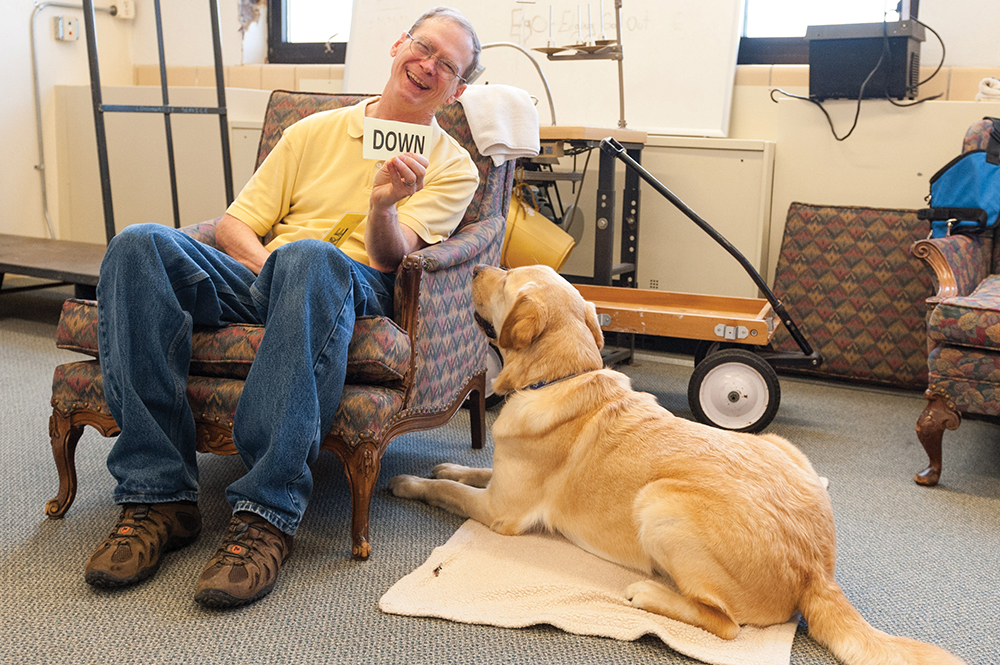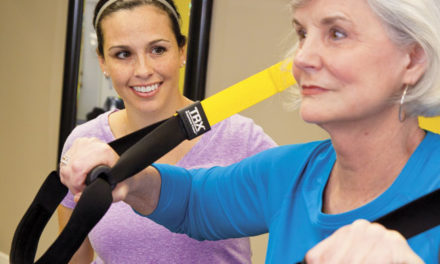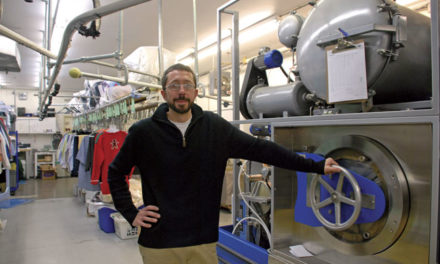
Hunter with his companion, John Miller. Because Miller has limited speech, Hunter has learned to obey cues written on cards. Courtesy Photo
BY BARB BERGGOETZ
It was a proud day in June when Susan Augenbergs saw Hunter, a puppy she helped train as a service dog, paired with his forever
companion in a graduation ceremony at the Indiana Women’s Prison in Indianapolis.
Susan and her husband, Uldis, who own Framemakers on West Kirkwood, work with the Indiana Canine Assistant Network (ICAN) training program, an Indianapolis nonprofit organization that assists people with disabilities. The couple has cared for five puppies and several older dogs since 2014. Hunter, a golden retriever-Labrador mix who is now 3 years old, was their first. They took him in for two months when he was 8 weeks old and cared for him again for a four-week furlough period.

Hunter as a puppy in Bloomington. Courtesy photo
“He is so mild-mannered and just a really smart dog,” Augenbergs says. “At graduation, he was so happy to see me and remembered us by our scents.” Hunter was placed with John Miller, 59, of Evansville, Indiana, who has limited mobility and speech due to a stroke. Hunter has learned to obey cards with written cues such as “sit” and “down.”
Using positive reinforcement, inmates at Indiana Women’s Prison in Indianapolis and at Pendleton Correctional Facility and Correctional Industrial Facility teach the ICAN dogs 75 to 100 cues. Dogs are placed with people with limited mobility, diabetes, autism, and other disabilities. Nearly 175 dogs have been placed with people in the past 15 years.
Dogs learn basic commands, including stay, sit, heel, and drop, as well as complex tasks such as providing balance assistance, opening cabinets, and retrieving objects. Volunteers, like the Augenbergs, raise puppies before training begins and during several furloughs to reinforce cues, redirect them if they don’t understand cues, and help get them accustomed to being in public. The Augenbergs take their puppies to work, restaurants, stores, and on other outings.
As volunteers, they received an initial 18 hours of training and refresher classes throughout the year in Indianapolis.
“It’s a lot of nurturing and a lot of loving,” Augenbergs says. “It’s all about making them comfortable and confident. You fall in love with them, but you know they’re not yours from the beginning. We’re all in this to teach the dogs and for the end result—to help the people who need them.”
For more information, visit magbloom.com/icandog.










